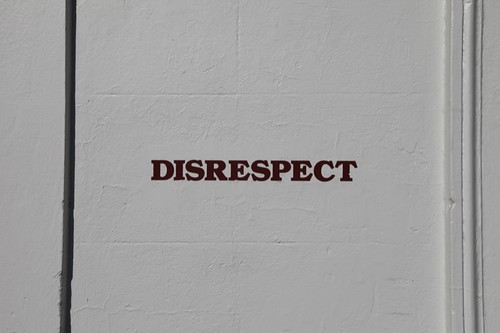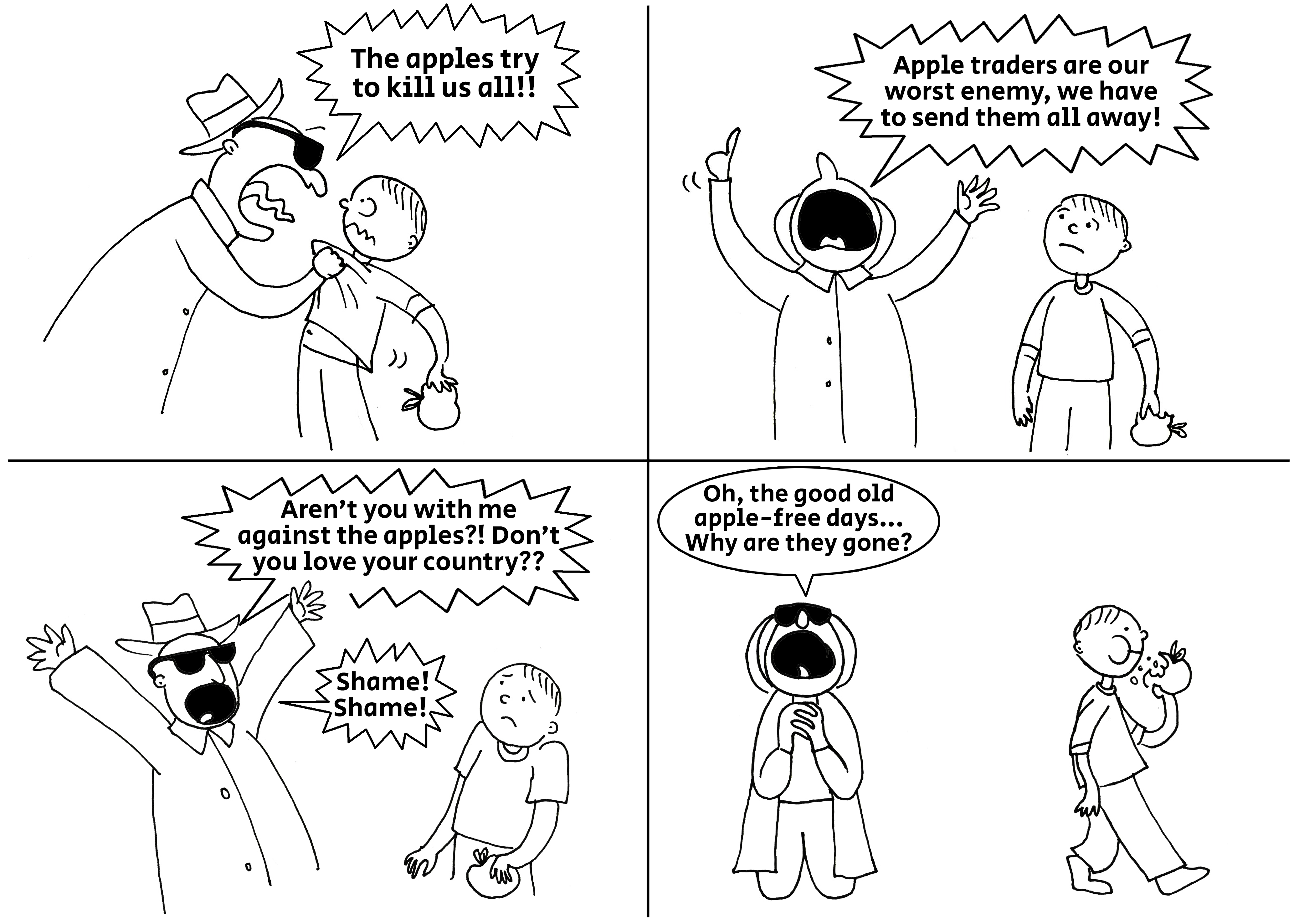
Sometimes, you just know that a person’s not right for you, but you go for it anyway. We’ve all been there, swept up in the excitement of a new connection, hoping for the best. Early dating is absolutely supposed to be a thrilling adventure, a time of discovery, and a sprinkle of butterflies. But what happens when, amidst all that newness, something feels just a little… off? That gut feeling, that whisper of doubt, it’s often more than just nerves; it could be your intuition trying to tell you something incredibly important.
Red flags are called that for a reason, and they’re often surprisingly easy to spot, if we’re truly honest with ourselves. Still, in the intoxicating haze of a burgeoning romance, we might choose to ignore them, deny them, or even justify them away. It’s so tempting to wear those rose-colored glasses, especially when the chemistry is strong and the potential feels limitless. Our brains naturally want the story to go well, and that hopeful outlook can make it incredibly hard to admit when something doesn’t quite sit right within us. We might rationalize their actions, constantly asking ourselves, ‘Maybe I’m overreacting?’ when we should be pausing to check in with our true feelings.
But here’s the thing: noticing red flags in early dating isn’t about being paranoid; it’s a powerful act of protecting your emotional safety and ensuring you’re building something genuine, respectful, and ultimately healthy. These crucial warnings aren’t always loud, dramatic alarms ringing in your face. Instead, they often appear in small, subtle moments: a joke that stings more than it lands, a gesture that feels a little too fast or intense, or that persistent, unshakeable pit in your stomach you can’t quite explain. Fundamentally, red flags in dating relationships are behaviors, patterns, or dynamics that signal potential harm—whether emotional, relational, or psychological. They are clear warning signs that something may be deeply off beneath the surface, even if everything looks perfectly fine on the outside. What truly matters isn’t whether a behavior is technically “wrong,” but profoundly, how it makes *you* feel: diminished, anxious, confused, or fundamentally off-center.

1. **They repeatedly disrespect your boundaries.**Boundaries are super important in any healthy relationship, right from the very start. Think of them as the invisible lines that define what you’re comfortable with, what you need to feel safe and respected, and what you simply won’t tolerate. They are essential for maintaining your sense of self and personal space. So, when you clearly communicate a boundary, whether it’s about physical intimacy, personal time, emotional capacity, or even just needing space on a busy day, a partner who genuinely values and respects you will honor that implicitly. It’s truly a non-negotiable part of building trust and showing fundamental care for your well-being and autonomy.
A major, flashing red flag immediately emerges when they consistently push your boundaries, or even outright break them, despite you having made yourself abundantly clear. Maybe they try to convince you to do something you’ve clearly said that you absolutely don’t want to do, perhaps with persistent persuasion or manipulative tactics. Or they might simply go too far, crossing a line you’ve explicitly drawn, dismissing your comfort for their own desires. This isn’t just a minor slip-up or a misunderstanding; it’s a fundamental disregard for your autonomy, your stated needs, and your personal agency. It’s absolutely crucial to firmly make it clear that they must respect your boundaries if they genuinely want to continue dating you and building a connection with you.
Consider, for example, someone who relentlessly insists that you get ually involved even though you’ve explicitly stated that you want to take things slow and build intimacy gradually. Or perhaps they continually pressure you to make a commitment you’re not yet ready for, trying to rush the relationship into its next phase before you feel comfortable. These aren’t signs of passionate pursuit or overwhelming affection; they are, in fact, undeniable indicators of someone prioritizing their desires and agenda over your comfort, your explicit wishes, and your emotional readiness. A person who knowingly and repeatedly disrespects your boundaries is highly likely to continue doing so throughout the entire relationship, creating an environment where you constantly feel unheard, invalidated, and even violated. This pattern will chip away at your sense of security and trust over time.
Read more about: Are You That Colleague? Unmasking the 14 Office Habits That Unnerve Coworkers and Bosses

2. **They try to isolate you from your loved ones.**A healthy partner should ideally integrate smoothly into your life, enriching your world rather than attempting to become your *entire* world, no matter how much you adore them. It’s perfectly natural for someone to want to feel prioritized, and it doesn’t make them ‘crazy’ for desiring your time and attention. However, you absolutely should be allowed to maintain a vibrant, fulfilling life outside of the relationship, one that includes your cherished friends and family. Healthy connections thrive on a balance of shared experiences and individual pursuits, nurturing your existing friendships and family bonds while also growing new ones together.
When you begin to notice that they are actively trying to isolate you from your loved ones, or subtly trying to turn you against them, this is a blaring, unmistakable red flag. This behavior might start quite subtly, perhaps with seemingly innocent guilt trips when you make plans with friends, or frequent, casual criticisms of your family members that sow seeds of doubt. For instance, if you’ve barely seen your friends or family since you started dating them, or you find yourself constantly cancelling plans to be with your new partner, that’s a pretty major warning sign that your support system is being eroded. This kind of emotional isolation can slowly, and often imperceptibly, shrink your social world, leaving you more and more dependent on them for all your emotional needs and social interactions.
It’s a foundational truth that your partner should, in most cases, strive to get along with the other important people in your life. Of course, life isn’t always simple, and sometimes there are genuine personality clashes that are unavoidable. There might even be situations where your family and friends genuinely don’t approve of your choice of partner. If this is the case, it’s incredibly important to try and see things as objectively as you can, because they might be pointing out a red flag that, due to your affection, you’re choosing to ignore. A truly healthy partner will want to be a supportive part of your existing social fabric, not replace it or systematically dismantle it. If you find your connections with your essential support system are slowly fading, you need to take that seriously and evaluate what’s truly happening.
Read more about: The Enduring Saga of the American Robin: An In-Depth Look at North America’s Most Prolific Songbird

3. **They disrespect you.**Respect, alongside love, forms the absolutely indispensable bedrock of any truly healthy and thriving romantic relationship. It’s not just about grand, dramatic gestures or big declarations of affection; it’s fundamentally about the everyday interactions, the subtle cues, and the underlying way someone values your personhood. A partner who disrespects you, in any form, simply isn’t a good partner, full stop. You both deserve to feel consistently seen, deeply valued, and genuinely heard, without question or compromise. This mutual regard is the foundation upon which everything else is built.
Disrespect can manifest in myriad ways, and often quite subtly at first, making it alarmingly easy to dismiss or minimize. Perhaps they don’t trust your judgment to make an adult decision, or they roll their eyes dismissively at you when you express an opinion you hold dear. They might consistently dismiss your thoughts as unimportant, talk down on you as if you’re inferior, or even openly mock your ideas or appearance, sometimes under the guise of ‘just teasing.’ These behaviors, however small or seemingly insignificant they initially appear, are clear, undeniable indicators of a profound lack of respect. Each instance, no matter how minor, chips away at your confidence and forces you to question your own worth within the dynamic, eroding your self-esteem over time.
However they choose to disrespect you, it’s a critical red flag to watch for because their behavior is highly unlikely to change for the better later on in a relationship. In fact, it could very well get worse as time goes on and they become more comfortable and perhaps more manipulative. Mutual respect is a necessary, indispensable component of a healthy relationship; it’s not just a nice-to-have, but a fundamental prerequisite for emotional safety. It’s a transparent sign of how this person is going to treat you in the long run, reflecting their core character. If you consistently find that you don’t feel respected, that’s a powerful signal you absolutely, under no circumstances, should ignore. Your well-being depends on heeding it.
Read more about: From Subtle Shade to Royal Stages: What Celebs Are Really Saying About Adam Lambert (And What He’s Saying Back!)

4. **They talk badly about all their exes.**Let’s be real: few people remain best friends with all their exes, and it’s completely understandable to have complicated feelings about past relationships. When you’re dating someone new, it’s pretty normal, and even expected, to have a brief, honest conversation about past romantic connections to get a general understanding of their history. Basic information is usually sufficient, and a mature perspective involves acknowledging that relationships are intricate and often involve the dynamics of two people. However, there’s a vast, telling difference between a factual recap of a past relationship and a full-blown, relentless smear campaign against every single former partner.
If your new connection constantly trash talks *all* their exes, painting every single one as unstable, irrational, or “crazy” for leaving them, this is an enormous, flashing red flag that should make you proceed with extreme caution and critical evaluation. This consistent pattern of blaming others suggests a striking lack of accountability on their part. It’s a significant warning sign when someone simply cannot or will not take any responsibility for what went wrong in *any* of their past relationships, always casting themselves as the innocent, wronged perennial victim of circumstance or another person’s supposed madness. This self-serving narrative is often deeply revealing.
Most self-aware individuals, even if they harbor resentment or dislike for their exes, are mature enough to accept their fair share of the blame when a relationship ultimately breaks down. They understand that it takes two people and two sets of actions to create the end of a relationship. A person who categorically refuses to acknowledge their own shortcomings by badmouthing *all* their exes is likely not self-aware enough, nor emotionally mature enough, to participate in a truly healthy, reciprocal, and introspective relationship. This behavior raises a crucial and uncomfortable question: how will they talk about *you* if things don’t work out between you two? What you hear about their past partners today could very well be precisely what future partners hear about you tomorrow, painted in the same unflattering light.

5. **They use name-calling in fights.**Arguments are, let’s face it, a natural and unavoidable part of any relationship, even in its shiny, new, early stages. It’s perfectly normal to disagree, to have different opinions, and even to get into a tiff now and then – it means you’re both individuals with your own thoughts and feelings! In fact, how a couple learns to navigate conflict and disagreement says a tremendous amount about the inherent health, stability, and potential longevity of their bond. The key isn’t about miraculously avoiding disagreements entirely, but rather *how* you both choose to fight, and whether both partners can maintain a fundamental level of respect, even when emotions run hot and things get heated.
A major, undeniable red flag to watch for is when your partner consistently resorts to name-calling or demeaning labels during arguments. This behavior goes far beyond simply expressing frustration or anger in a moment of heat; it’s a clear sign of extremely poor conflict resolution skills and, more profoundly, a fundamental lack of respect for you as an individual, even in moments of intense emotional challenge. When someone is ready and willing to hurl hurtful words that they can’t magically unsay later, words that are clearly designed to inflict pain rather than contribute to resolution, it’s a deeply troubling and unsustainable indicator for the future of your relationship. It shows a willingness to damage the emotional fabric of your connection.
Name-calling is a classic example of someone not respecting the crucial emotional ‘line’ during arguments. It vividly demonstrates an inability to manage their own emotions constructively and often indicates a tendency to escalate conflict in destructive, rather than productive, ways. This type of behavior rarely bodes well for a relationship’s future, as it relentlessly chips away at the essential trust, emotional safety, and mutual regard that are vital for a lasting connection. It’s one of those easy-to-spot red flags that, if ignored or rationalized away, can lead to a relationship constantly marred by hurtful words, unresolved tension, and a pervasive feeling of walking on eggshells. You deserve to argue fairly, with respect, and without fear of verbal abuse.

6. **They refuse to work.**We all have our individual dreams, goals, and aspirations in life, and while these can certainly differ widely from person to person, a basic level of ambition, drive, and self-sufficiency is often a cornerstone for a stable, thriving partnership. You might encounter someone who appears to have no discernible career goals, no stated intention to secure a job, and seems perfectly content existing without contributing financially or professionally. While taking a necessary break from job hunting due to specific circumstances is entirely understandable, a grown-up individual who is chronically unemployed and actively refuses to work is generally not the person you want to build a serious future with.
A person should ideally possess some form of goal or direction in life, and it’s genuinely challenging, if not impossible, to achieve personal and shared aspirations without fundamental motivation and a means to support oneself and, eventually, a household. When your partner demonstrates no income and an apparent lack of motivation to earn any, they aren’t really moving forward in life in any practical sense. This stagnation often means that, by extension, you’re probably not going to get very far with them either if you’re looking for a partner to build a life alongside. This isn’t necessarily about how much they earn, but rather about their fundamental approach to responsibility, ambition, and self-sustainment in the adult world.
The big, honest question you have to ask yourself, with full objectivity, is this: are they actively working toward something meaningful in life, whatever that ‘something’ may be, or are they content with laying on the couch, passively waiting for life to hand them everything they desire? Perhaps they are passionately trying to make it as an artist, an entrepreneur, or pursuing some other unconventional path, which is fantastic and admirable in its own right, provided they show tangible effort and progress. However, if they simply have no idea what tomorrow could bring, and they have no concrete plans, drive, or proactive steps to build the life they claim they want, then they are probably not a person you can make solid, reliable future plans with. And having shared future goals and a mutual willingness to work towards them is absolutely essential for a healthy, balanced, and fulfilling long-term relationship.
As we continue our journey into identifying crucial red flags in new romantic relationships, it’s vital to delve deeper into behaviors that can signal long-term issues. While some red flags might seem subtle at first, understanding their implications can save you a lot of heartache down the line. Remember, protecting your emotional safety means paying attention to these signals and trusting your gut. Let’s uncover six more significant red flags that can help you navigate the early stages of dating with greater clarity and confidence.
Read more about: Decoding the Academy Awards: Essential Rules and Evolving Practices That Shape Hollywood’s Biggest Night

7. **They don’t respect their parents.**When you’re getting to know someone, one of the most telling indicators of their character can be found in their relationship with their parents. Your partner should ideally treat their parents with respect, and often with love, unless there’s a history of abuse or genuinely poor parenting that would naturally complicate that bond. This foundational relationship often reflects a person’s capacity for empathy, gratitude, and long-term commitment.
A significant red flag emerges if you observe them being downright cruel or consistently dismissive towards their folks without a justifiable reason. Think about it for a moment: if they can treat the people who raised them with such disregard, what does that imply about how they might eventually treat you, especially when the initial spark fades and daily life sets in? It’s a powerful reflection of their core values and emotional maturity.
It’s also worth considering the other end of the spectrum. Sometimes, a person might exhibit an unhealthy attachment to their parents, where boundaries are blurred, or they’re overly dependent. This, too, can be a red flag, as it might indicate an inability to form an independent, adult partnership. The key is balance and genuine respect.
Ultimately, the nature of your partner’s relationship with their parents can offer profound insights into the potential dynamic you could have with them. For example, if they consistently show ingratitude towards their parents, it’s highly probable that this same pattern of ingratitude will manifest in their relationship with you over time. It speaks volumes about their capacity for appreciation and healthy reciprocity.
Read more about: From Dreamy Encounters to Total Nightmares: Fans Spill the Tea on the Best and Worst Celebrities They’ve Ever Met

8. **They have drastic mood swings.**Imagine waking up each day unsure of what version of your partner you’re going to get. One day, they might be the most charming, attentive, and wonderful partner you could possibly imagine, making you feel completely adored. But then, the very next day, it’s like a switch flips, and they push all your buttons, perhaps becoming irritable, withdrawn, or even combative, only to return to their ‘best self’ on the third day, continuing a bewildering cycle.
These drastic, unpredictable mood swings are a classic sign of an individual who might be emotionally unstable or, at the very least, emotionally immature. If you constantly find yourself guessing what kind of mood they’ll be in, walking on eggshells, or feeling like their emotional state could change drastically at any second, it’s going to be incredibly challenging to build a genuinely healthy and stable relationship with them.
In any partnership, you need someone who you can truly count on, someone who brings a sense of reliability and emotional security to your life. It’s simply not possible to build a lasting, trusting bond with someone whose emotional responses are so volatile and unpredictable. You deserve a partner who demonstrates a consistent level of maturity and stability, allowing you to feel safe and secure.
Of course, everyone experiences occasional mood fluctuations; it’s a normal part of being human. But when these mood swings are so continuous and intense that they become a defining characteristic of a person’s personality, it’s a deeply ingrained pattern that is unlikely to change without significant, intentional effort. Don’t mistake this for passion or intensity; it’s a sign of a deeper emotional issue.
Read more about: Beyond Coffee: 14 Actionable Habits for All-Day Energy and Peak Productivity

9. **They are too secretive.**In a healthy, evolving relationship, honesty and openness are absolutely fundamental. While it’s perfectly normal for someone not to lay out their entire life story on the very first few dates, you should definitely start to form a clear and coherent picture of who they are by the time your relationship progresses to a more committed stage. This process involves a gradual unveiling of trust and shared understanding.
However, there’s a crucial distinction between being a little mysterious—which can be intriguing in the early days—and being outright secretive. If you constantly get the nagging feeling that your partner is deliberately hiding significant aspects of their life or personality from you this early in the relationship, it’s a serious red flag. Imagine how much more opaque and potentially troubling things could become as the relationship deepens.
Healthy partners don’t feel the need to be evasive about minor, everyday details that don’t truly matter. They might hold back on deeply personal traumas or past issues until they feel truly comfortable, and that’s understandable. But if they’re cagey about inconsequential things or give vague answers to simple questions, it suggests a deeper issue at play.
If you find them being secretive about things that genuinely don’t warrant such guardedness, it might be a subtle but profound indicator that they are either concealing a much bigger problem or, even more unsettling, that they don’t genuinely want you to truly know them at a fundamental level. This kind of guardedness actively prevents the deep intimacy and trust necessary for a fulfilling connection.

10. **They had an affair with you while they were with someone else.**This red flag is one of the most unambiguous and direct warnings you can encounter. If your current partner cheated on someone else to be with you, or if your relationship began while they were actively involved with another person, a stark truth emerges: they have a proven track record of infidelity. This pattern makes it significantly more likely that they will, at some point, repeat this behavior with someone else, ultimately betraying your trust.
This is especially true if their romantic history appears to be a revolving door of relationships, where they seem to jump straight from one partner to the next without any real period of single reflection or emotional processing. The fact that they engaged in an affair *with you* serves as undeniable evidence that they are not strangers to breaking trust, leading to the crucial question: what assurances do you truly have that they will remain faithful to you?
Even if your relationship didn’t begin under the shadow of an affair, if you discover they have a consistent history of cheating on previous partners, the chances of them doing so again unfortunately increase. While it’s true that not every person who cheats will do so again, the odds, frankly, do not work in your favor when such a pattern exists. You’re essentially starting a relationship with a known risk factor.
This is why it’s incredibly important that you both have a clear and aligned understanding of what ‘fidelity’ means to each of you from the very beginning. Trust is the bedrock of any healthy partnership, and a history or willingness to engage in infidelity, whether directly involving you or not, speaks volumes about their approach to commitment, honesty, and respect within a relationship.
Read more about: Behind the Headlines: 13 Race Teams Who Would Never Agree to Use the Same Pit Crew

11. **They want to know all your passwords.**In a healthy partnership, while openness is highly valued, so is personal privacy. It’s fantastic when you and your partner can openly share aspects of your lives, including your online activities, fostering a sense of transparency. However, when one partner begins to *demand* or *monitor* all your online passwords, it’s a blaring red flag that usually signals an underlying issue of distrust or, even more concerning, a desire for control.
Seriously, ask yourself: why would a partner insist on knowing all your passwords if they truly trusted you implicitly? While you certainly shouldn’t be engaging in secretive online activities that could legitimately harm the relationship, you are absolutely entitled to your own privacy and autonomy within the digital sphere. This is a fundamental aspect of maintaining your individual identity within the partnership.
Of course, if there’s been a specific incident where you’ve given them a legitimate reason to be suspicious, a conversation about rebuilding trust might be understandable. But outside of such specific circumstances, a blanket demand for all your passwords is a clear overreach and a sign of insecurity that places a burden of proof on you for no justifiable reason. It’s about their anxieties, not your actions.
Even more troubling is if you discover them snooping through your phone, computer, or other electronic devices behind your back. This isn’t just a breach of privacy; it’s a profound violation of trust. If such behavior occurs early on, it forces you to confront a difficult question: can you truly ever trust someone who feels entitled to invade your private digital spaces without your consent? This kind of surveillance erodes the very foundation of respect.
Read more about: Secure Your Season: 10 Actionable Strategies to Prevent Identity Theft and Tax Fraud

12. **They shame you.**If your partner frequently makes you feel stupid, embarrassed, or deeply ashamed, it’s an immediate and critical red flag that you absolutely shouldn’t ignore. This isn’t just about discomfort; it’s about a fundamental undermining of your self-worth. You simply do not need a partner who consistently refuses to take your opinions seriously, talks down to you, or openly mocks your ideas or even your appearance, sometimes disguised as “just teasing.”
Think about it: why would you ever want to be with someone whose primary effect on you is to make you feel bad about yourself? A true partner is meant to be your biggest cheerleader, someone who uplifts you, celebrates your strengths, and supports you in your vulnerabilities. They should be a source of confidence and comfort, not a constant drain on your self-esteem, and you must hold onto that truth.
When a partner consistently criticizes or shames you, it’s often a projection of their own insecurities, and a deeply unhealthy one at that. It’s very likely that this behavior makes *them* feel better about themselves by diminishing you, which is a major red flag for their character. You certainly don’t want to be in a relationship where someone systematically chips away at your self-confidence just to boost their own ego.
This type of demeaning behavior says far more about their internal struggles and character flaws than it does about you. So, while their words might sting, it’s crucial not to internalize them or allow them to define your self-perception. Recognize that this is *their* issue, not yours, and protect your emotional well-being by not tolerating such destructive patterns. Your self-worth is non-negotiable.
***
Read more about: The 11 Most Blatant Failures: Unmasking ‘As Seen on TV’ and Detailing Products That Crumbled Under Scrutiny
You should note that the most important of these red flags aren’t really about your partner – they’re about you. If you idealize your partner and see them as someone they’re not, you’re not doing anyone any favors. Knowing all the red flags to look out for won’t mean much if you choose to ignore them and justify your partner’s bad behavior. After all, if you know that someone’s wrong for you and still go after them, no one can help you. Trust your instincts and try to see things as objectively as you can to make sure that you end up with the right person. Most importantly, don’t waste your time on those who are not right for you if you’re looking for something meaningful and long-lasting.



